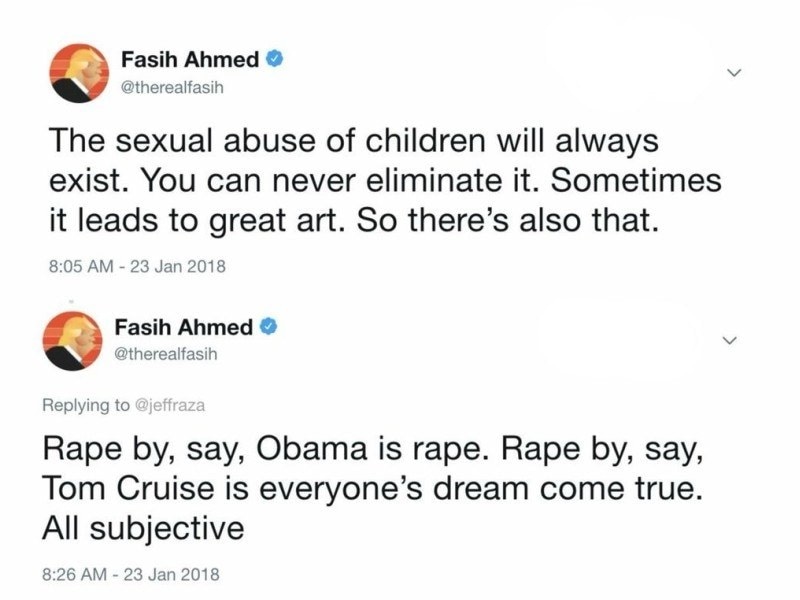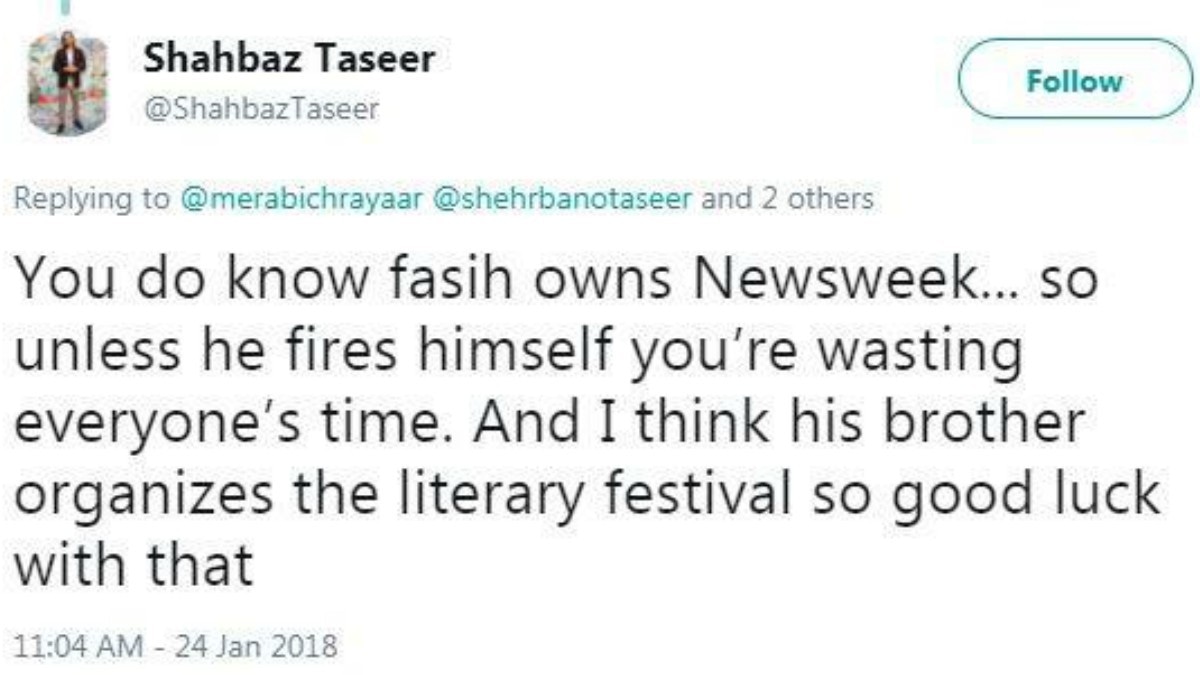The past few weeks in Pakistan have had us confront seriously vexing questions, like: how do we sensitise a culturally conservative society about child abuse? How should we frame conversations around rape?
A high-profile spat on Twitter this week provided some insight on how to answer these questions -- and more.
Also read: Newsweek Pakistan editor draws ire for insensitive tweets about child abuse
When Newsweek Pakistan editor and former Lahore Literary Festival board member Fasih Ahmed began tweeting about child sexual abuse, many commentators jumped in to call him out for being insensitive and offensive. Prominent international personalities like Mona Eltahawy and Alyssa Milano joined calls for Ahmed to be removed from his post, ensuring that his remarks could not go unnoticed.

While Ahmed ultimately resigned from his position as LLF board member and issued an apology, screenshots of his troubling messages continue to float around the internet.
Add to that problematic tweets by friends and sympathisers defending his outburst and you might arrive at the perfect guide for how NOT to talk about sexual abuse.
Read on to find out.
There is a time and place for satire. The weeks after a horrific case of a child's rape and murder isn't it. Neither is Twitter the appropriate medium.

Commentators called out the tweet above for being homophobic, and we have to say, even if this was intended as 'sarcasm' or 'dark humour,' it was the wrong move at the wrong time.

Listening is an art very few have perfected. Twitter would have you believe that people don't know this skill exists at all.
As a general rule, when you voice your opinion on a controversial topic, it is a good idea to listen to the feedback people give you, especially people who have some knowledge about the issue you're discussing.
It is NOT a good idea to start name-calling people who disagree with you and passing remarks on their appearance, as Ahmed did with Mona Eltahawy.

Instead, we recommend self-reflection.

If you feel compelled to apologise for your statements, make sure your apology is unequivocal and sincere.
Saying your readers/ followers 'misread' your tweets neatly shifts the blame off you and places it on others, which we're pretty certain is the opposite of an apology.
While we have the utmost sympathy for survivors of sexual abuse, the #MeToo hashtag cannot be used as an excuse for offensive and abusive comments.
Let this be a moment to understand that when you use the pain of surviving abuse or belonging to a marginalized community to excuse bad behaviour, you're basically just trivializing the goals and ethos of the #MeToo movement.
The #MeToo hashtag exists to create solidarity among victims and to hold abusers to account. It does not exist to exonerate privileged people who offend.

Let's not forget that Fasih Ahmed is not just some random person rambling on the internet; he's the editor-in-chief of a leading news magazine, has more than 14,000 followers on Twitter and his voice is being heard, loud and clear.

We hope people remember that the words and actions of people with influence matter more than their 'intentions.' In this case many leaped to the editor's defense saying that he didn't 'mean it, or that he should be forgiven because he was 'angry' or 'hurt.'

Having been through a lot doesn't justify acting out or lashing out. Anger definitely has a role in activism in that it can be used as a rallying force and as a stimulant for taking action. Anger should be used to build something larger than itself, not take people down.
This kind of defense actually enables and aids privileged people in abusing their power, and we need to stop now.
Amid all this, some people argued that protesting against this offensive behavior was pointless as Ahmed owns the publication he runs.

We can't with this one. We're not sure what point this tweet means to make exactly, but we can say it's incredibly elitist.
Comments